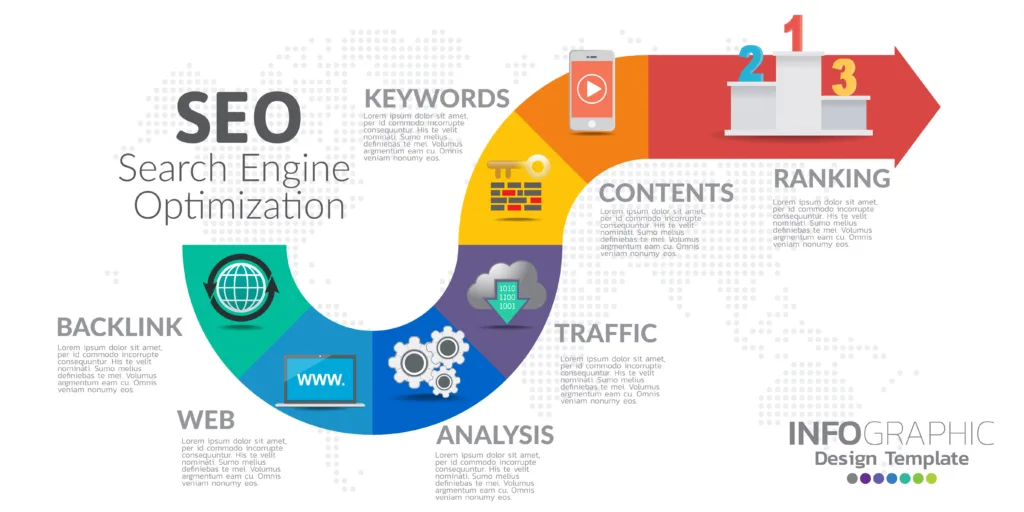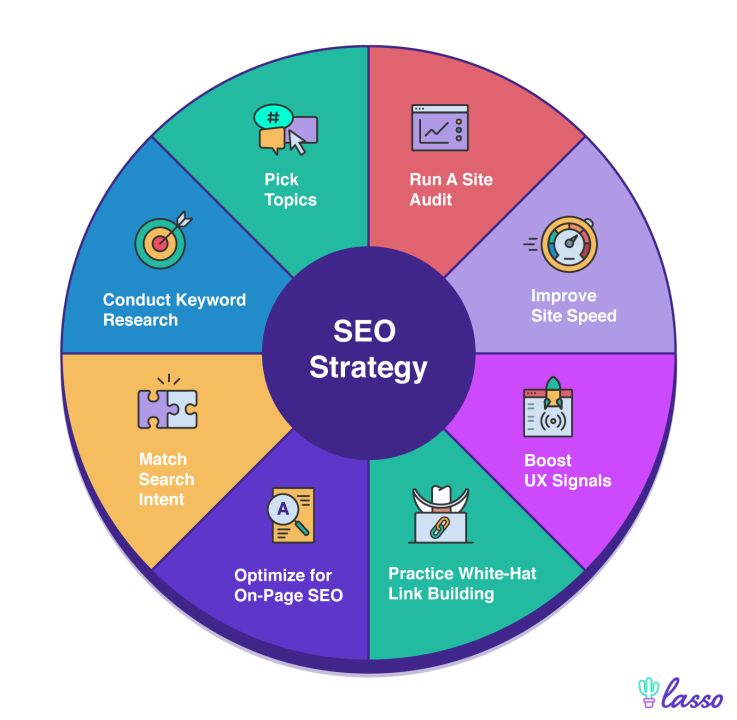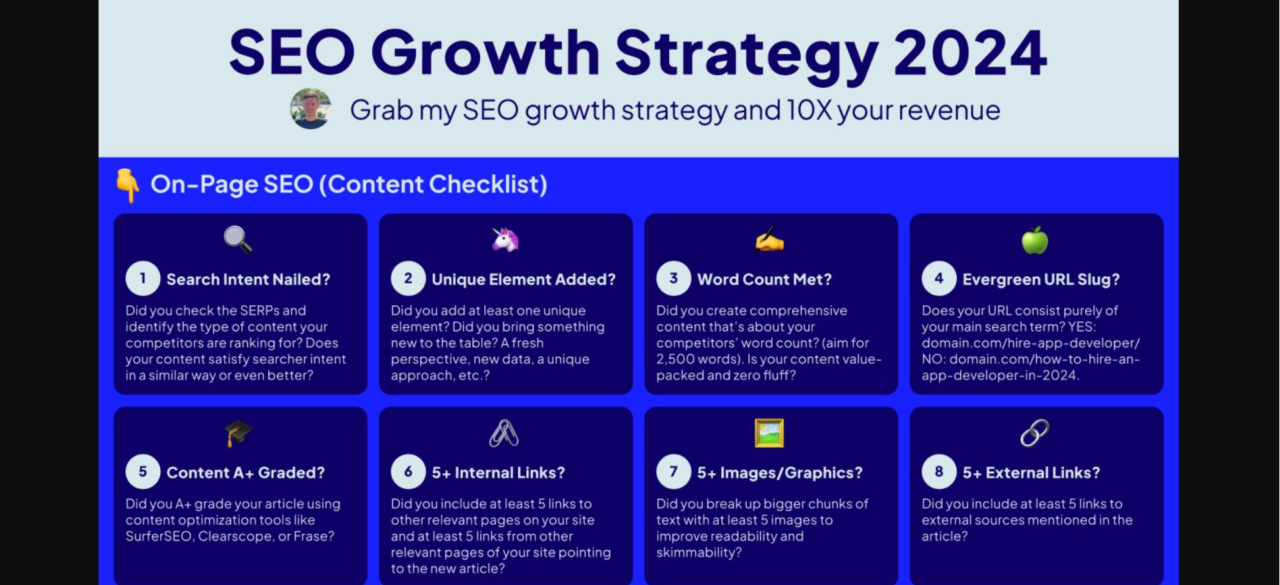Unlock the secrets of SEO management with these must-know tips and strategies for driving success online. Don’t miss out!

Image courtesy of via DALL-E 3
Table of Contents
Introduction to SEO Management
SEO, which stands for Search Engine Optimization, is like a magic tool that helps websites appear higher up in search results. It’s kind of like a popularity contest for websites on the internet! Good SEO management is crucial for websites to get noticed and attract more visitors.
What is SEO?
SEO is all about making sure that search engines, like Google, can easily find your website when people search for something related to what you offer. By using specific techniques and strategies, websites can improve their SEO and increase their chances of appearing at the top of search results.
Why is SEO Important?
Having good SEO is like having a secret weapon to boost your website’s visibility. When your website shows up higher in search results, more people are likely to click on it. This can lead to more traffic, more customers, and more success for your website or business.
Understanding Search Engines
When you search for something on the internet, have you ever wondered how search engines like Google find the information you’re looking for? Let’s dive into the world of search engines to understand how they work and why they are essential for discovering information online.
How Search Engines Work
Search engines are like super-fast detectives that search through billions of web pages to find the most relevant results for your query. They use special programs called algorithms to analyze and rank websites based on various factors like keywords, quality of content, and website reputation.
Imagine you type in a question or a keyword into a search engine. The algorithm then sifts through its database to find websites that match your search terms and displays them in a list from the most relevant to the least relevant. This is how search engines help you find what you’re looking for on the vast expanse of the internet.
Popular Search Engines
Google is the most popular search engine, but there are others like Bing and Yahoo that also help people find information online. Each search engine has its own unique algorithm and way of ranking websites, but they all serve the same purpose – to help you discover the information you need quickly and efficiently.
Keywords and Their Importance
In the world of websites and the internet, keywords play a vital role in helping search engines find the right content. But what are keywords, and why are they so important in SEO?

Image courtesy of digitalneighbor.com via Google Images
What are Keywords?
Keywords are specific words or phrases that people type into search engines when looking for information. These words act as clues for search engines to understand what a website or piece of content is about. For example, if someone is searching for the best pizza in town, they might type in keywords like “best pizza” or “pizza near me”.
Using the right keywords in your content can help search engines like Google match your website with the queries people are searching for. This is why choosing the right keywords is crucial for improving your website’s visibility and attracting the right audience.
How to Choose Keywords
When selecting keywords for your content, it’s essential to think like your target audience. Consider what words or phrases they might use when searching for information related to your website. You can use tools like Google Keyword Planner to research popular keywords in your industry and see how competitive they are.
Additionally, it’s essential to use a mix of broad and specific keywords to reach a wider audience while targeting a specific niche. Long-tail keywords, which are longer and more specific phrases, can also help you target users who are closer to making a purchase decision.
By incorporating relevant keywords strategically throughout your website and content, you can improve your chances of ranking higher in search engine results pages and driving organic traffic to your site.
On-Page SEO Techniques
In the world of SEO, title tags play a vital role in helping search engines understand what your webpage is all about. A title tag is the headline of your webpage that shows up in search engine results. It gives both search engines and users a brief glimpse of the content on your page. To write an effective title tag, make sure it accurately reflects the content of your page, includes relevant keywords, and entices users to click through to your site.
Meta Descriptions
Meta descriptions are like mini advertisements for your webpage. They are the brief snippets of text that appear below the title tag in search engine results. While meta descriptions don’t directly impact your page’s ranking, they play a crucial role in enticing users to click on your link. A well-crafted meta description should accurately summarize the content of your page, include relevant keywords, and entice users to visit your site for more information.
Off-Page SEO Techniques
Backlinks are like stamps of approval from other websites that tell search engines your content is valuable. When a reputable website links back to yours, it boosts your credibility and authority in the eyes of search engines. This can lead to higher rankings in search results. It’s important to focus on getting backlinks from quality websites related to your niche. You can reach out to other websites, create valuable content that others want to link to, or use online tools to discover potential link-building opportunities.

Image courtesy of www.linkedin.com via Google Images
Using Social Media
Social media isn’t just for sharing cat videos and vacation photos – it can also play a crucial role in your SEO strategy. Having a strong presence on platforms like Facebook, Twitter, and Instagram can increase your brand visibility and drive traffic to your website. When people engage with your content on social media by liking, sharing, or commenting, it sends positive signals to search engines that your content is valuable and worth showing to others. Make sure to optimize your social media profiles with relevant keywords, share your content regularly, and engage with your followers to maximize the SEO benefits of your social media efforts.
Creating Quality Content
In the world of SEO, creating quality content is essential to improving your website’s visibility and ranking on search engines. Quality content not only attracts more visitors to your site but also keeps them engaged and coming back for more. Let’s explore the importance of producing high-quality, engaging content for SEO success.
What is Quality Content?
Quality content refers to material that is valuable, relevant, and well-written. It should provide answers to the questions users are searching for, offer solutions to their problems, or entertain and engage them. Quality content is not only attractive to readers but also to search engines like Google, which prioritize content that is informative and authoritative.
Tips for Writing Engaging Content
When creating content for your website or blog, consider the following tips to make it more engaging:
1. Know your audience: Understand who your target audience is and tailor your content to their needs and preferences. Use language and tone that resonates with them.
2. Use visuals: Incorporate images, videos, infographics, and other multimedia elements to make your content visually appealing and easier to consume.
3. Keep it concise: Write clear and to-the-point content that gets straight to the point. Avoid unnecessary fluff and keep your sentences and paragraphs short.
4. Optimize for SEO: Integrate relevant keywords naturally into your content to improve its search engine ranking. Use headings, subheadings, and meta descriptions effectively.
5. Tell a story: Engage your audience by telling stories or sharing personal experiences that relate to your topic. Stories are memorable and help establish a connection with your readers.
By following these tips and focusing on creating quality content, you can enhance your website’s SEO performance and attract more organic traffic. Remember, quality always trumps quantity when it comes to content creation for SEO.
Measuring SEO Success
When it comes to measuring the success of your SEO efforts, there are several key metrics you should pay attention to. These metrics can give you valuable insights into how well your website is performing in search engine results. One important metric to track is traffic. This tells you how many people are visiting your site, which is a good indication of how well your SEO strategies are working.

Image courtesy of www.linkedin.com via Google Images
Another important metric to consider is the bounce rate. This measures the percentage of visitors who navigate away from your site after viewing only one page. A high bounce rate could indicate that your website isn’t meeting the expectations of visitors or that they are not finding what they are looking for.
Lastly, conversion rate is a crucial metric to track. This metric tells you how many visitors are taking the desired action on your site, such as making a purchase or filling out a contact form. A high conversion rate means that your SEO efforts are bringing in the right kind of traffic that is likely to convert into customers.
Using Analytics Tools
One of the most effective ways to track and measure your SEO success is by using analytics tools like Google Analytics. This powerful tool provides valuable data on how visitors are interacting with your website, where they are coming from, and which pages are performing the best.
Google Analytics also allows you to set up goals and track conversions, giving you a clear picture of how well your website is meeting your objectives. By regularly monitoring your website’s performance through analytics tools, you can make data-driven decisions to optimize your SEO strategies and improve your overall online visibility.
SEO Best Practices
Staying updated with the latest SEO trends and updates is crucial for the success of your website. Search engines like Google often change their algorithms, which can impact your website’s ranking. By keeping yourself informed about the latest changes, you can adjust your SEO strategies accordingly to stay ahead of the competition.
Regular Audits
Regular SEO audits are vital to ensure that your website is performing at its best. By conducting audits, you can identify any issues that may be affecting your SEO efforts and make necessary adjustments. These audits can help you improve your website’s visibility and rankings on search engine results pages.
Conclusion
In conclusion, mastering SEO management is essential for any website looking to improve its visibility and attract more visitors. By understanding what SEO is, how search engines work, the importance of keywords, on-page and off-page SEO techniques, creating quality content, measuring success with analytics tools, and following best practices, you can effectively optimize your website for better search engine rankings.

Image courtesy of www.linkedin.com via Google Images
Remember, good SEO practices are not a one-time task but an ongoing effort that requires regular monitoring, tweaking, and staying updated with the latest trends in the ever-evolving world of search engine optimization. By implementing these strategies and techniques, you can set yourself up for long-term success and continue to drive organic traffic to your website.
Want to turn these SEO insights into real results? Seorocket is an all-in-one AI SEO solution that uses the power of AI to analyze your competition and craft high-ranking content.
Seorocket offers a suite of powerful tools, including a Keyword Researcher to find the most profitable keywords, an AI Writer to generate unique and Google-friendly content, and an Automatic Publisher to schedule and publish your content directly to your website. Plus, you’ll get real-time performance tracking so you can see exactly what’s working and make adjustments as needed.
Stop just reading about SEO – take action with Seorocket and skyrocket your search rankings today. Sign up for a free trial and see the difference Seorocket can make for your website!
Frequently Asked Questions (FAQs)
What is the First Step in SEO?
When starting with SEO, the first step is to conduct keyword research. Keywords are the words or phrases that people type into search engines when looking for information. By identifying the right keywords related to your content or business, you can optimize your website to appear higher in search engine results, making it easier for people to find you online.
How Long Does SEO Take?
The time it takes to see results from SEO efforts can vary based on various factors such as the competitiveness of your industry, the quality of your content, and the consistency of your SEO strategies. Generally, it can take a few months to start seeing significant improvements in your search engine rankings. SEO is an ongoing process that requires patience and regular optimization to maintain and improve your website’s visibility and traffic over time.







